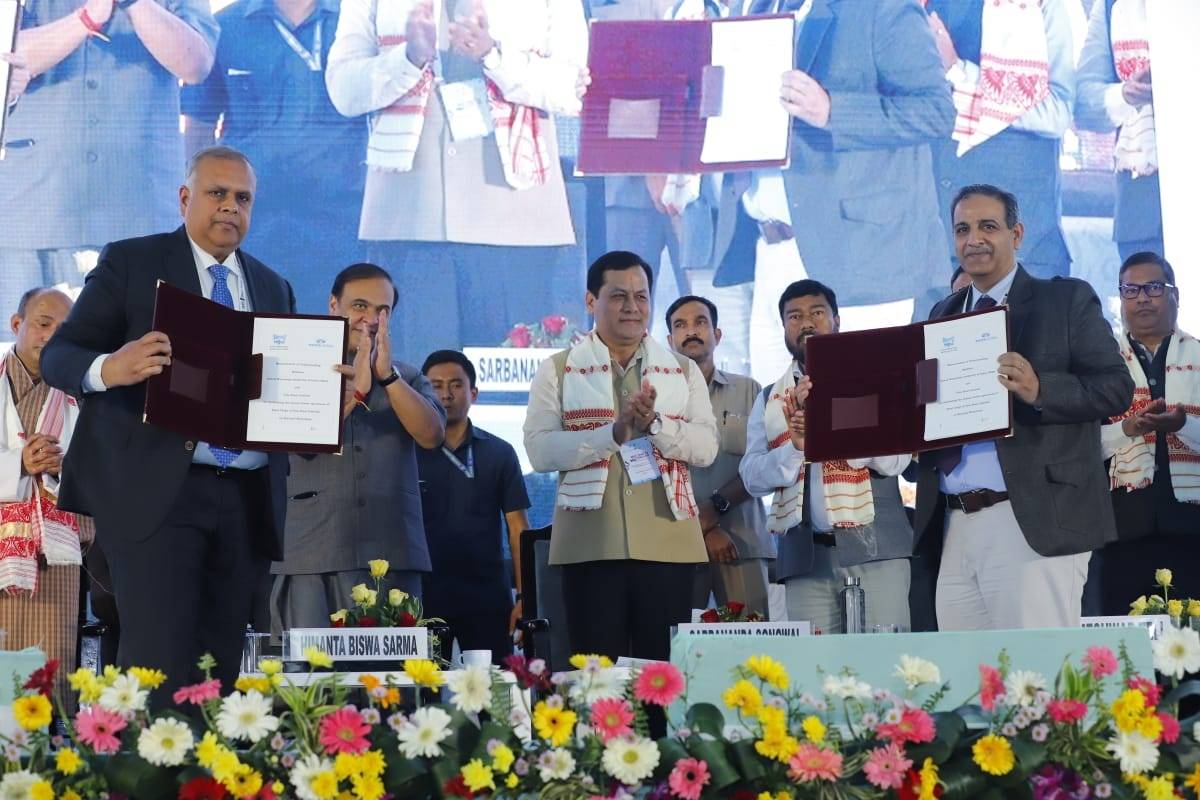About 8,480 km of the navigable waterway of Bangladesh could be utilised for transportation and distribution of goods between Bangladesh, India, Nepal and Bhutan, said Khalid Mahmud Chowdhury…reports Asian Lite News
Waterways of Bangladesh could be utilised for transportation between Bangladesh, India, Nepal, and Bhutan, Bangladesh Shipping Minister Khalid Mahmud Chowdhury said on Tuesday.
Addressing the two-day ‘Waterways Conclave 2022’ in Assam’s Dibrugarh virtually from Dhaka, he said that there are 700 rivers in Bangladesh, out of which 54 are on the boundary between Bangladesh and India.
About 8,480 km of the navigable waterway of Bangladesh could be utilised for transportation and distribution of goods between Bangladesh, India, Nepal and Bhutan, he said.
As many as six Indian ministers — Road Transport and Highways Minister Nitin Gadkari, Development of North Eastern Region Minister G. Kishan Reddy, Railways Minister Ashwini Vaishnaw, Minister of State for External Affairs Dr Rajkumar Ranjan Singh, and Minister of State for Labour and Employment Rameshwar Teli, besides Union Ports, Shipping, and Waterways Minister Sarbananda Sonowal, Bhutan’s Economic Minister Lyonpo Loknath Sharma, Assam Chief Minister Himanta Biswa Sarma, and Manipur Minister Awangbow Newmai also spoke in the Conclave.
Bhutan Minister Sharma said that the trade between Bhutan and India was increasing and invited the stakeholders to work towards enhancing the link between Assam and east Bhutan, which has a vast potential in terms of economy of scale.
“Leveraging waterways is the answer… we are looking forward to regional connectivity,” he said.
Alluding to the importance of achieving logistics efficiency and, in turn, the waterways sector, Gadkari, in his virtual address, said that the logistics cost is 8 to 10 per cent (of the cost of goods) in China, 10-12 per cent in the European countries and around 12 per cent in US and 16 per cent in India.
He averred that waterways are the most cost-effective medium of transport compared to road and railways.
Kishan Reddy said that waterways would be significantly helpful in realising the potential of abundant natural resources in the northeast, while Vaishnaw said that we must try to achieve as high a share of the waterways sector as possible in the logistics mix, comprising rail, road, and waterways in the country.
“One litre of fuel will transport one tonne of freight, 24 km by road, 95 km by rail and an impressive 215 km by waterways,” he said.
Sonowal said that within a radius of 2000 km, they have all big cities with a combined population of 800 million and waterways could provide the greatest opportunities for our young entrepreneurs. He invited the industry to proactively partner with the government in the waterways sector.
Highlighting the immense potential of the waterways ecosystem for the northeast region, Inland Waterways Authority of India Chairman Sanjay Bandopadhyaya said: “We are not only trying to connect with the neighbouring countries, but also with all the states of this region and extending to Uttar Pradesh, Bihar, Jharkhand, West Bengal, and Odisha.”
Alluding to the numerous milestones achieved in the waterways sector, Ports, Shipping and Waterways Secretary Sanjeev Ranjan said that a record movement of 4.5 million metric tonnes under the Bangladesh India Protocol Route had been achieved.
Sarma said that Assam is implementing Rs 770 crores Assam Inland Water Transport project to provide safe and convenient ferry services to passengers.
Aout the importance of the waterways ecosystem in the northeast, Sarma said that the Brahmaputra basin possesses nearly 30 per cent of India’s water resource potential and cargo movement through waterways would significantly reduce dependence on cargo transportation for roadways.
“Regular movement of cargo through waterways would create job opportunities and open the international market for local products through cost-effective transport”, he said.

Leave a Reply